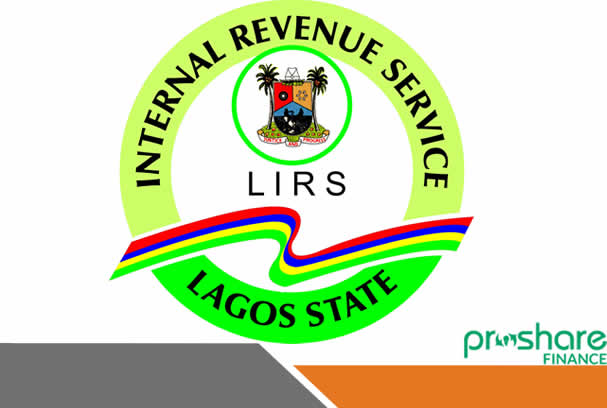Monday, September 18, 2017 2:00PM / Taiwo Oyedele, PwC Nigeria Tax Partner
Over time, employers have adopted various practices in the treatment of loans that were granted to their employees for tax purposes. The Lagos State Internal Revenue Service (LIRS) has now issued its position on what should be an appropriate tax treatment of loans that are granted to employees by their employers.
Overview
There has been a lack of clarity regarding the taxation of benefits that arise from loans granted to an employee by the employer. Historically, no benefit tax is imposed on interest free loan or loan granted at below commercial interest rate between the employer and the employee.
The LIRS has issued a public notice to guide taxpayers in this regard. The notice describes employee loans and seeks to explain when a Benefit-In-Kind (BIK) arises from a loan that is granted to an employee by an employer and how to ascertain the benefit that is enjoyed by the employee from the loan. See highlights below.
Highlights of the public notice
Definition of “employeeloan”: LIRS defined employee loans as loans given by an employer to an employee for specific reasons with the expectation that such loans will be repaid to the employer in full.
Interest benefits arising from employee loans: A benefit arises when an employer provides a loan to an employee and the interest rate is lower than the adjusted Monetary Policy Rate (MPR) which for tax purposes has been set at MPR minus 3%.
(Interest benefit to be deemed at MPR -3%, that is, 11% (currently MPR at 14% - 3% = 11%).
If the interest rate charged is up to or higher than the adjusted MPR, then there will be no taxable BIK. The MPR is currently 14%, this means any employee loan granted by the employer below 11% per annum will be subject to BIK tax.
The BIK assessment is to be done at the point of repayment of the loan, which could be monthly, annual or other periodic basis.
Application and reporting obligation: The directive is applicable to all employee loans and loans to directors of a company even after the relationship between them and the company is terminated until such loan amount is fully repaid. No reference was made to present value or discounting.
LIRS also requires that employers file details of employee loans and the payment terms along with their annual employer Pay-AsYou-Earn (PAYE)returns.
Takeaway
While the basis of determining the taxable benefit may be debatable, it is clear that a benefit arises when a loan is granted to an employee at below commercial interest rates.
As a result the LIRS Notice will help reduce the uncertainty regarding taxation of employee loans.
The LIRS should take further steps to seek specific amendments to the law to clearly specify the basis and manner of determining the taxable benefit. It may also be useful to provide a tax exemption threshold by amount and tenor to avoid significant administrative cost to employers.
Given that this is a change in past practice of the LIRS, a cut-off point and transition period should be provided.
Download LIRS NOTICE_TAXATION OF EMPLOYEE LOAN 2017.jpg)
Related News
1. Joint Tax Board issues Public Notice on abuse of Voluntary Pension Contribution Scheme
2. LIRS clarifies the definition of reasonable removal expenses for the purpose of tax exemption
3. Taxation of entertainers and sportsmen in Nigeria: What, how and where?
4. Guide to Fiscal Information - Key Economies in Africa 2017
5. Taxation of High Net-Worth Individuals: Is this a chase after shadows?
6. NFIU, FIRS Host International Tax Conference in Abuja on April 26-28, 2017
- Read
- Archives
- Bonds & Fixed Income
- Capital Market
- Chamber of Commerce
- Commodities
- Corporate Results
- ETFs
- Forex
- Funds
- General
- Global Market
- Market Updates
- Mergers & Acquisitions
- Mutual Funds
- Private Equity
- Public & Private Offers
- REITs
- Research Resources
- Stock & Analyst Updates
- Stock Picks
- Unlisted OTC MARKET
- Market Sentiments
- Online Trading
- Year After A
- Capital Market Report
- Read
- Personal Finance Series Reports
- Year After Report
- Economic & Financial Reviews
- Impact & Performance Reviews
- Archives
- Products&Services
- Sector Reports
- Quarterly Results
- Taxation
- Mutual Funds
- Monetary Policy
- Proshare Reports
- Power & Energy
- Right Issue Indemnity
- Proshare Analyst Reports
- Insurance
- Private Placements
- Doing Business in Nigeria
- Money Issues
- Regulators
- Fraud & Scandals
- Audited Accounts &Financial Reports
- Proshare Confidential
- Memo to the Market
- Health
- Regulator
- CEO Statement
- Proshare on company
- Online Trading Report
- Agriculture
- Legal Matters & Laws
- Conference Call
- Press Release
- Training
- World of Business
- Bond Market
- Others
- Annual Reports
- Analyst Equity Reports
- Budget
- Nigerian Economy
- Commodities
- Fintech
- Review & OUTLOOKS
- Monthly Market Report
- Oil&Gas
- IR Service Reports
- Public Offers
- Elections
- Education
- IR Presentation
- Analyst Market Reports
- Global Economy
 Lagos, NG • GMT +1
Lagos, NG • GMT +1











 5930 views
5930 views





 Sponsored Ad
Sponsored Ad
 Advertise with Us
Advertise with Us









